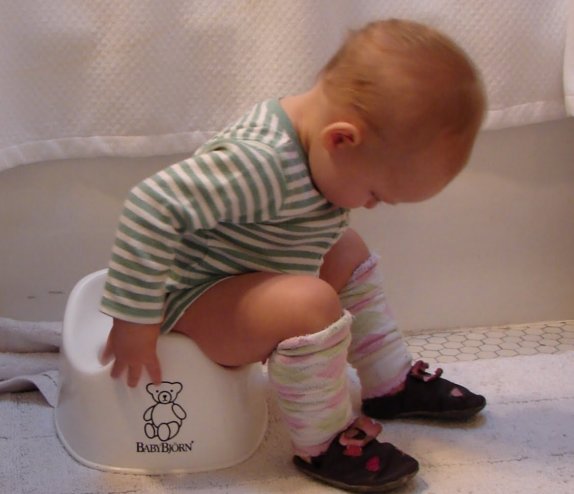Control over the sphincters is really a great part of what it means to be human, and I think we sometimes ignore this essential part even as we pay attention to things like hand-eye co-ordination, music, language and so on. We are meeting on Thursday 1 March from 7-9pm to discuss how we can help children become independent in the use of the toilet.
A Child-led Approach to Toilet Learning
THE THREE MONTESSORI KEYS
There are three keys to creating a Montessori experience for your child. They are:
1. Prepare the environment
2. Show them how to do things
3. Take time
Lets look at each of these three as they relate to toilet learning.
1. Prepare the environment
Our home can help or hinder our baby’s desire for toilet independence.
a) Potty and toilet
- In what ways can I help my baby learn what the toilet is for?
- What is a potty for anyway? How is it to be used?
b) Underpants and diapers
- What happens when a baby pees and then feels wet?
- Can a baby learn to put a diaper on? How about pull-up cotton pants?
c) Changing
- Can I make it easy for my walking baby to put dirty clothes away?
- Is being able to change independently related to self-esteem? How?
2. Show them how to do things
Our role as parents is to help our baby towards toilet independence.
a) Following my baby’s interest
- What parts of the toilet set-up most interest them? Am I experimenting?
- What parts of the toilet routine most interest them? Are we having fun?
b) Respecting their capabilities
- Which steps in the routine could they have some participation in?
- Have I shown them slowly and clearly what is involved in those steps?
c) Thinking ahead
- How has their independence grown? How will it continue to grow?
- Do I adapt my interactions with them as their capabilities grow?
3. Take time
Gentle routines allow our baby to learn to use the toilet in their own time.
a) Finding a routine
- At what times of the day are they most likely to experience a ‘success’?
- How could I extend the time my baby spends on the potty?
b) Nappy-free time
- How often could I leave my baby without any diapers on?
- Is it at all possible for my baby to be in cotton pants when at home?
c) An investment in the future
- What does taking time with them now do for their future relationships?
- What does supporting their growing capability do for their self-esteem?
Recommended reading
Diaper Free Before Three, by Dr. Jill Lekovic MD.



